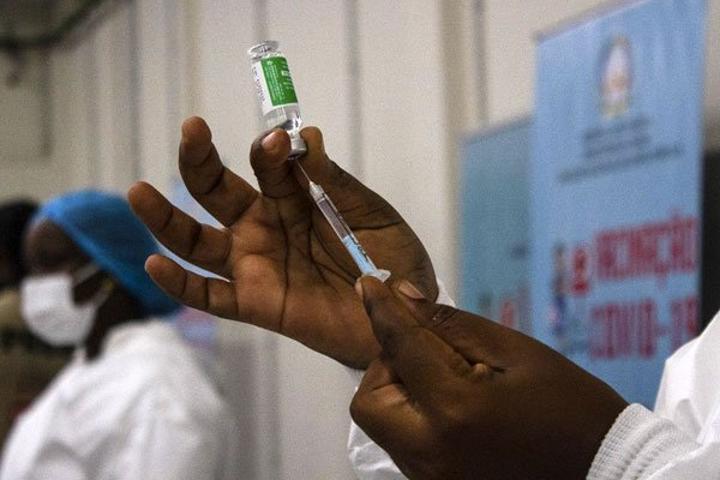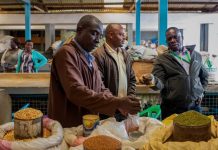Africa-Press – Uganda. Prof Pontiano Kaleebu is a Clinical Immunologist and the director of Uganda Virus Research Institute (UVRI). Our reporter Tonny Abet spoke to him about the fears, risks and efficacy associated with Covid-19 vaccine whose first batch the country expects to receive tomorrow.
After receiving Covid-19 vaccine jab, how long does it take for immunity to kick in and how long does the immunity last?
In most of these vaccines, immunity can kick in about two weeks after vaccination with the first dose. How long immunity will last is still not very clear since most vaccinations have been recent and a lot is not known. In some of the vaccines such as the Moderna one, they have found that those vaccinated will have the immune responses after three months, in a few of those vaccinated, there is a reduction in the antibodies, especially in the older age group. I can say we don’t know how long the immunity will last for now.
Why are they administering two doses of the vaccine?
In vaccine sciences, we use the term prime and boost. A prime-boost immunisation strategy is where you give an initial dose and then a booster dose at a later time. This is aimed at increasing the immune responses. Those who get the boost, the immune response is generally higher and lasts longer.
Will someone still transmit or contract the virus after being vaccinated?
Most vaccines so far work best in preventing severe disease and hospitalisation, but not getting infected or getting mild disease. It is, therefore, expected that vaccination will reduce transmission [although] not totally. This is not new with vaccines.
Will this vaccination put to an end measures such as wearing of face masks and social distancing?
In the longer term this is what we should expect but not immediately. For now, there is still a lot to learn, including the efficacy of these vaccines. That is why masks and social distancing is still encouraged. As mentioned before, some of these vaccines are not stopping transmission, but severe disease.
Then we are also now having this issue of new variants which may not be prevented by some vaccines. The virus is mutating and we need to follow this as well. I think when there is enough immunity in the population, time will come when facemasks and social distancing will be abandoned, but not now.
Will the mRNA vaccine from Moderna and Pfizer and the AstraZeneca DNA alter my genetic code?
No, because the genetic material does not get integrated and it degrades after sometime. This is one of the intensive studies done before approval to make sure there is no genetic integration into our DNA or genetic code.
The mRNA has no way of getting into the nucleus where our DNA is and mRNA has no way of getting translated back to DNA. This mRNA lasts a few days before the cell removes it, but in that time, we have produced a lot of spike protein to stimulate the immune response. On the other hand, the DNA in the vector for the AstraZeneca has been made in a way not to replicate, but it is turned into an RNA and later viral proteins.
(mRNA vaccines borrow a mechanism that your cells use to make all the proteins in your body. mRNA refers to messenger ribonucleic acid and DNA refers to deoxyribonucleic acid).
If you compare Covid-19 vaccine with other vaccines, what is unique about this one?
Covid-19 vaccines have benefitted from previous knowledge in vaccinology and the research that has gone into other diseases such as HIV, malaria, and tuberculosis (TB).
To give you an example, vaccines that use vectors like adeno vectors, both human adenoviruses and chimpanzee adenoviruses, have been well-studied for many years and modified to be used as vehicles to carry the genetically engineered parts of another virus, in this case, the spike region of SARS-CoV-2 (the virus that causes coronavirus).
Inactivated vaccines are also not new in vaccine studies. Even when it comes to messenger RNA, a lot of work had been done to use this approach. An example, scientists at the Vaccine Research Centre in United States used a technique they have used for HIV vaccine research to quickly generate or make mutations for a structurally stable SARS-CoV-2 spike protein used in the Moderna vaccine.
The difference is that with Covid-19, science has moved very fast to move some of these concepts like mRNA into licensure for the first time and this is a big achievement.
If you compare with HIV, SARS-CoV-2 and the disease Covid-19 are different. HIV is a chronic infection where the body fails to fight it off, but SARS-CoV-2 is an acute infection which in most cases is cleared in a few days. So, the immunity of these viruses and the virus itself are different; HIV is more complicated.
Covid-19 vaccine has also benefitted from the clinical trial infrastructure and collaborations or networks created in developing other vaccines. A major difference has also been the funding, and working together with all the minds. Covid-19 has had a lot of funding, much higher than the HIV/Aids vaccine.
About $90 billion (Shs328 trillion) in just more than a year has been invested in the Covid-19 vaccine compared to about $15 billion (Shs58 trillion) for HIV vaccines in 20 years.
But, of course, the $90 billion includes large manufacture and delivery where HIV has not reached. Then most of the minds stopped all other activities and concentrated on Covid-19. So, we can see that if we put our energies and resources together, we can move faster.
Vaccination
Uganda will receive the first batch of Covid-19 vaccine donations from Covax Facility on Friday. Covax Facility is an initiative of manufacturers, governments and international organisations intended to ensure equitable access to the vaccines.
The Health minister, Dr Ruth Jane Aceng, while updating the media on Covid-19 vaccination on Tuesday, said the initial batch of 864,000 doses of AstraZeneca vaccine will arrive in the country on March 5 and the launch will be on March 8 while vaccination will kick off on March 10.
“The Covax Facility has communicated a tentative allocation of 3,552,000 doses of the AstraZeneca vaccine to Uganda for the period from January to June 2021. Of the above allocation, 864,000 doses are expected to arrive by March 5 and the remaining 2,688,000 by June 2021,” Dr Aceng said.
AstraZeneca vaccine is the main serum the country is focusing on due to its affordability, safety, ease to store and distribute among other reasons, according to the Ministry of Health.Government has also announced that beside AstraZeneca vaccine, it is considering the serum manufactured by Pfizer, Johnson & Johnson, and Sinovac from China to inoculate the population.
Sinovac, AstraZeneca and J&J vaccines can be stored in a standard refrigerator at 2-8 degrees Celsius, The Pfizer vaccine needs to be stored at -70C.






